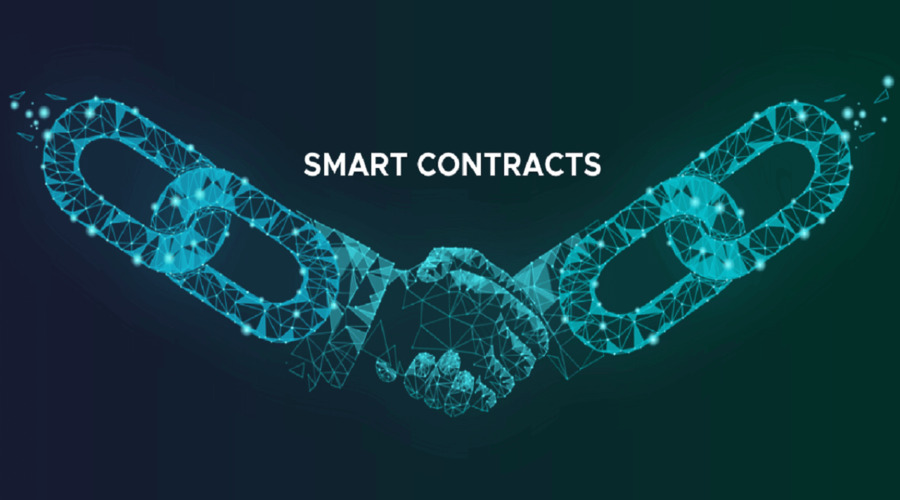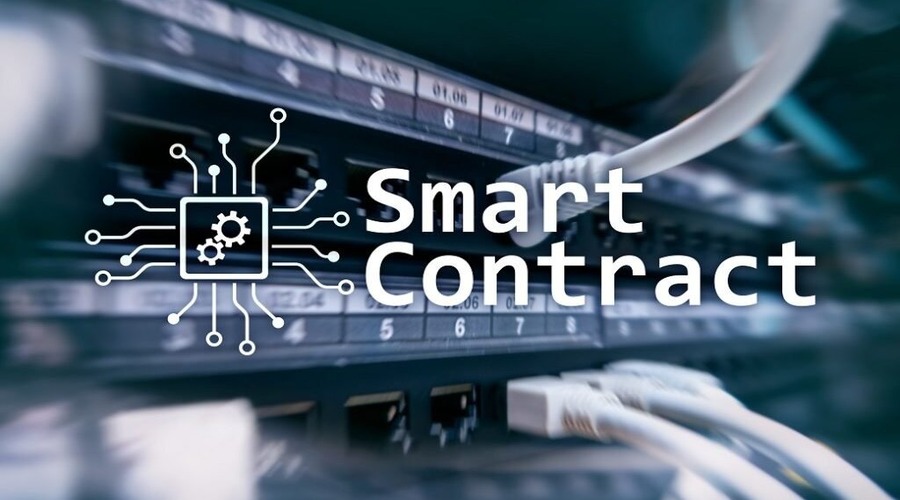The adoption of blockchain technology has revolutionized various industries, with smart contracts being one of its most promising applications. Smart contracts allow for automated, transparent, and tamper-proof execution of agreements, eliminating the need for intermediaries. However, their capabilities are limited to on-chain data, and accessing real-world information becomes a challenge. This is where oracles play a crucial role in bridging the gap between the blockchain and external data sources, enabling smart contracts to interact with real-world events and data.
Introduction to Smart Contract Ecosystems
Smart contract ecosystems are decentralized platforms that facilitate the execution of self-executing contracts. These contracts are coded with predefined conditions and are automatically executed when those conditions are met. Smart contracts run on blockchain networks, ensuring transparency, immutability, and security.
What are Oracles and Their Importance
Defining Oracles
Oracles in the context of blockchain and smart contracts refer to entities that act as intermediaries, providing access to off-chain data and external resources. They act as bridges between the decentralized blockchain networks and the centralized world of data and events.
Oracles and Decentralized Applications (DApps)
Decentralized applications (DApps) are an integral part of smart contract ecosystems. DApps leverage the capabilities of smart contracts to offer a wide range of services and functionalities. However, DApps often require access to real-time data, such as stock prices, weather conditions, or IoT sensor readings, which are not readily available on the blockchain. Oracles enable DApps to fetch and validate this data from external sources and incorporate it into the execution logic of smart contracts.
How Oracles Facilitate Data Access for Smart Contracts
Interacting with External Data
Oracles act as middleware, allowing smart contracts to interact with external data sources. They fetch real-time information from various APIs, databases, or even IoT devices and deliver it to the smart contracts. This enables smart contracts to make informed decisions based on real-world data, expanding their capabilities beyond the constraints of on-chain data.
Data Validation and Authenticity
One of the critical functions of oracles is to ensure the reliability and authenticity of the data they provide. They validate and verify the accuracy of the fetched data before feeding it to the smart contracts. This validation process may involve multiple layers of checks, including cryptographic proofs, consensus mechanisms, and reputation systems, to ensure the integrity of the data.
Types of Oracles in Smart Contract Ecosystems
- Software Oracles: Software oracles are the most common type and rely on software-based mechanisms to fetch and validate data. They use APIs, web scraping techniques, and other software tools to access data from external sources. Software oracles offer flexibility and can easily integrate with existing systems and services, making them widely used in various applications.
- Hardware Oracles: Hardware oracles leverage physical devices to gather and transmit data to smart contracts. These devices, such as IoT sensors or specialized hardware modules, directly interface with the external world and provide real-time data to the blockchain. Hardware oracles are particularly useful for applications that require real-time monitoring of physical parameters or environmental conditions.
- Consensus-based Oracles: Consensus-based oracles utilize the power of decentralized networks to ensure data accuracy and reliability. They aggregate data from multiple independent sources and use consensus algorithms to determine the most accurate and trustworthy information. Consensus-based oracles enhance the security and robustness of data feeds, reducing the risk of malicious or faulty data affecting smart contract execution.
Benefits and Use Cases of Oracles in Smart Contracts

- Real-World Data Integration: Oracles enable smart contracts to incorporate real-world data into their execution logic. This opens up a wide range of use cases, such as real-time pricing data for decentralized exchanges, weather information for parametric insurance contracts, and supply chain tracking for transparent and verifiable logistics.
- Automated Payments and Settlements: With oracles, smart contracts can automate payment and settlement processes based on predefined conditions and external data. For example, an insurance smart contract can automatically trigger a payout when specific conditions, such as a flight delay, are verified by an oracle. This eliminates the need for manual intervention and reduces transaction costs and processing time.
- Supply Chain Management: Oracles play a vital role in enhancing transparency and traceability in supply chain management. By integrating external data about the origin, authenticity, and quality of goods into smart contracts, stakeholders can ensure compliance, streamline logistics, and reduce fraud. Oracles can validate certifications, track shipments, and trigger actions based on predefined conditions.
- Insurance and Risk Assessment: Oracles enable the creation of innovative insurance products based on real-time data. Smart contracts can assess risks, calculate premiums, and automate claims processing using information fetched by oracles. For instance, parametric insurance contracts for natural disasters can be triggered by real-time data from seismic sensors or weather stations, streamlining the claims settlement process.
Challenges and Limitations of Oracles
- Security and Trust Issues: As oracles act as intermediaries between the blockchain and external data sources, their security and trustworthiness become crucial. Malicious or compromised oracles can provide false or tampered data, leading to incorrect smart contract execution. Proper security measures, such as encryption, secure data transmission protocols, and reputation systems, must be implemented to mitigate these risks.
- Data Reliability and Accuracy: The reliability and accuracy of the data provided by oracles are essential for the proper functioning of smart contracts. Inaccurate or unreliable data can lead to incorrect decisions, financial losses, or even system failures. Oracles must implement robust data validation mechanisms and source verification processes to ensure the integrity of the data they deliver to smart contracts.
- Scalability and Performance: As the adoption of smart contracts and blockchain technology increases, the scalability and performance of oracles become critical. Oracles need to handle a large volume of data requests and deliver real-time information efficiently. Scaling solutions, such as sharding or off-chain computation, can help alleviate these challenges and ensure the smooth operation of oracle networks.
Promising Oracle Projects in the Smart Contract Space
Chainlink
Chainlink is one of the most prominent decentralized oracle networks in the smart contract ecosystem. It provides a secure and reliable infrastructure for connecting smart contracts with external data sources, APIs, and payment systems. Chainlink’s decentralized network of nodes ensures data accuracy through consensus-based validation and reputation mechanisms.
Band Protocol
Band Protocol is another notable oracle project that aims to provide decentralized data governance for smart contracts. It offers a framework for developers to create and customize oracle scripts for fetching data from various sources. Band Protocol’s focus on community-driven data curation and consensus-based data validation enhances the reliability of data feeds.
DIA
Decentralized Information Asset (DIA) is a blockchain-based oracle platform that focuses on financial and market data. DIA leverages a network of validators to obtain and validate data from multiple sources. It offers transparent and auditable data feeds for DeFi applications, risk modeling, and prediction markets.
Best Practices for Implementing Oracles in Smart Contracts
Choosing Reliable Oracles
When integrating oracles into smart contracts, it is crucial to select reputable and trusted oracle providers. Consider factors such as the track record, security measures, data validation mechanisms, and community support of the oracle projects. Conduct thorough due diligence and research before relying on an oracle service to ensure the integrity and accuracy of the data.
Data Source Selection and Validation
Carefully choose the sources of external data to ensure reliability and accuracy. Validate the authenticity and quality of the data providers and implement robust validation mechanisms within the oracle system. Consider using multiple data sources and consensus algorithms to reduce the risk of malicious or faulty data affecting the smart contract execution.
Secure Data Transmission and Encryption
Implement secure data transmission protocols to protect the confidentiality and integrity of the data exchanged between oracles and smart contracts. Encryption techniques, digital signatures, and secure communication channels can safeguard sensitive information from unauthorized access or tampering.
Future Trends and Innovations in Oracle Technology
Decentralized Oracle Networks
The future of oracle technology lies in decentralized networks, where multiple independent nodes provide data feeds and validation services. Decentralized oracle networks enhance security, reliability, and censorship resistance by eliminating single points of failure and reducing the reliance on centralized authorities.
Cross-Chain Oracles
As the interoperability between different blockchain networks improves, the need for cross-chain oracles arises. Cross-chain oracles facilitate the exchange of information and assets between different blockchain ecosystems, enabling smart contracts to access data and interact with multiple chains seamlessly.
Privacy-Preserving Oracles
Privacy is a critical concern when integrating external data into smart contracts. Privacy-preserving oracle aims to protect sensitive data while allowing smart contracts to leverage its utility. Zero-knowledge proofs, secure multi-party computation, and differential privacy techniques are being explored to enable privacy-preserving oracle solutions.
Conclusion
Oracles play a vital role in expanding the capabilities of smart contracts by providing access to real-world data and resources. They enable automation, enhance transparency, and unlock new use cases in various industries. However, challenges related to security, reliability, scalability, and data accuracy need to be addressed to fully realize the potential of oracles in smart contract ecosystems. Projects like Chainlink, Band Protocol, and DIA are at the forefront of developing robust oracle solutions that mitigate these challenges and ensure the integrity of data feeds.
As the technology evolves, decentralized oracle networks, cross-chain oracles, and privacy-preserving oracles will shape the future of the ecosystem. These advancements will further enhance security, interoperability, and data privacy, making smart contracts more powerful and versatile.
In conclusion, oracles serve as the vital bridge between blockchain-based smart contracts and the external world of data and events. They enable smart contracts to access real-time information, validate data, and expand their functionalities beyond the blockchain. With the continuous development of oracle technology and the implementation of best practices, smart contract ecosystems will witness accelerated innovation, adoption, and transformative impact in various industries.

